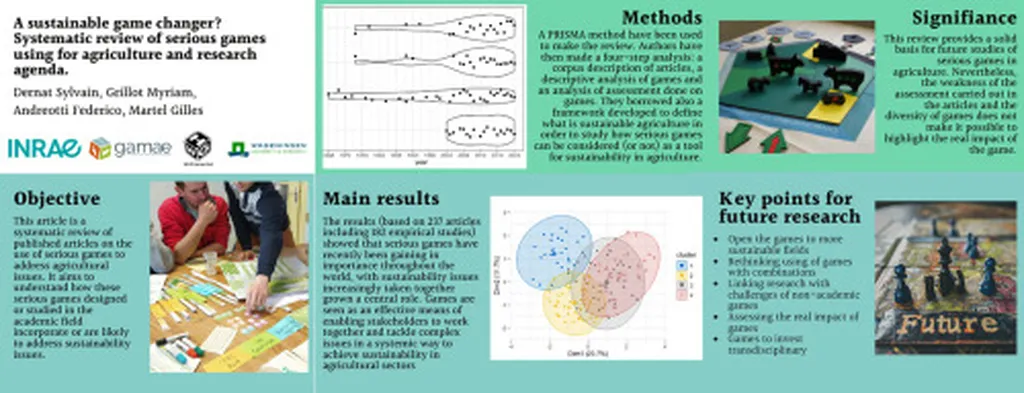In the heart of the agricultural revolution, a groundbreaking study led by Sehrish Riaz from the School of Systems and Technology is reshaping how we think about farming education and cultural integration. Published in the journal *Human Behavior and Emerging Technologies* (which translates to *Human Behavior and Emerging Technologies*), this research introduces a culturally tailored serious game design model that could transform smart agriculture education and practice.
Smart agriculture, or precision farming, leverages advanced technologies to optimize farming practices. However, integrating these modern techniques with traditional agricultural knowledge has been a challenge. Riaz’s study addresses this gap by exploring how serious games—games designed for purposes beyond entertainment—can bridge the divide between old and new farming practices while respecting cultural norms.
The research focuses on a game that simulates the farming cycle, from planting to harvesting, allowing players to experience the intricacies of sustainable farming. “The game is not just about teaching farming techniques; it’s about immersing players in the cultural and seasonal rhythms of agriculture,” Riaz explains. This approach aims to educate children and anyone interested in understanding the origins of their food and the importance of sustainable practices for future generations.
The study employed a quasi-experimental design, comparing a traditional learning group with an experimental group that used the serious game. Pre- and post-tests, statistical analyses, and heuristic evaluations were used to measure improvements in agricultural knowledge. The results were striking: the game group showed significant knowledge retention, particularly in areas like precision farming, sustainability, and IoT-based solutions.
“This study demonstrates that serious games can be a powerful tool for blending traditional agricultural knowledge with modern farming practices,” Riaz notes. The findings suggest that culturally tailored serious games could play a pivotal role in promoting sustainable farming education across diverse cultural settings.
The implications for the agricultural sector are profound. By making farming education more engaging and culturally relevant, these games could accelerate the adoption of smart agriculture practices. Farmers, especially in regions where traditional methods are deeply rooted, may find it easier to transition to precision farming techniques when they are presented in a familiar and interactive context.
Moreover, the commercial impact could be substantial. As the demand for sustainable and efficient farming practices grows, companies investing in agritech solutions stand to benefit from a workforce and consumer base that is better educated and more receptive to technological innovations. The integration of cultural elements into serious games could also open new markets for agritech products, as these tools become more accessible and appealing to diverse populations.
Riaz’s research highlights the potential of serious games to revolutionize agricultural education and practice. As the world grapples with the challenges of feeding a growing population sustainably, this innovative approach could be a key to unlocking the future of smart agriculture. The findings published in *Human Behavior and Emerging Technologies* offer a glimpse into a future where technology and tradition converge to create a more sustainable and informed agricultural landscape.

